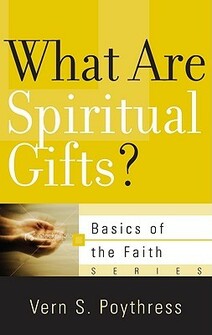Love is the most important commandment in the Bible. And the second most important. On love for God and neighbor hang both testaments. And at the center of the Bible hangs a Savior who loved his own even to the end. Love saved the world.
Love also made the world. It is common for theologians—Jonathan Edwards prominent among them—to argue that it was the mutual love of the persons of the Trinity that spilled out of heaven and formed all creation.
And yet it is just as common for preachers to insist that most people misunderstand what “love” truly means. If you’ve been around church for long enough, you’ve almost certainly heard that a particular New Testament word solves this problem, that agape—one of the comparatively few Greek words most Christians know—names a specific kind of Christian love. That love is commonly said to be an unconditional love, one that transcends feeling and may not even include it. “Agape love,” many say, “is a choice, not a feeling.”
Is this true?
“Agape love,” many say, “is a choice, not a feeling.” Is this true?
This question divides into two parts, a theological and a linguistic part. 1) Is love-is-a-choice theology true, and 2) does the Greek word agape really communicate that theology? Here we’ll get some help from Jonathan Leeman, who has written insightfully and practically on the theology of love. We’ll also get some help on the language of love by talking with linguist and Bible translator Vern Poythress about the Greek word agape. As the great theologian—and expert swordsman—Inigo Montoya once said, I’m not sure that word means what you think it means.
Leeman on love (eros, philia, agape)
Jonathan Leeman is editorial director for 9Marks, a ministry to churches. He’s also an elder and a dedicated churchman. Leeman has written two books on love—because he loves the church, and because he wants to see the church reflect the love of Christ both inside and outside church walls. His entry point into discussion about love is one you might not expect, however. He set out to write about church discipline, something the Bible clearly teaches but churches rarely practice.
And one reason they don’t practice it is this objection: Isn’t Christian love, agape love, supposed to be unconditional? How can love ever demand discipline?
I sat down with Jonathan in the basement at Capitol Hill Baptist Church in Washington, D.C., to talk about these questions, to talk about love. (View our discussion in full above.)
I pointed out to Jonathan that at first, in his books, he sounds like the countless other preachers I’ve heard—who then go on to teach that the New Testament has multiple specific Greek words for love:
- Eros for romantic love
- Philia for friendship love
- Agape for Christian love
I’ve heard many times that eros and philia are “acquisitive” loves, while agape is a “giving” love. So I asked Jonathan, “Why don’t you say that?”
“The problem is, this idea of love that’s either pure gift, or pure desire …, it’s just not quite how love works,” Leeman says.
Leeman points to John 5: “Think of the Father saying to the Son, you are My beloved Son, with whom I am well pleased. … He takes pleasure in the Son. I love you, my beloved Son. So he’s going to give to the Son, but he’s also taking pleasure in the Son.” In other words, the most fundamental love in existence—Trinitarian love—doesn’t fit clearly into either of the “gift” or “desire” buckets. It’s both.
Shoving love into just one of the buckets causes problems. Seeing love as only desire is the error our culture falls into, a view in which to love yourself is to give all your desires full expression—to, with Elsa, Let it Go. “No right, no wrong, no rules for me.”
A common error with agape
But seeing Christian love, “agape love,” as gift only is the more common error in the Christian church. And this error causes others. For example, Leeman says, “If love is entirely [gift] and I’m putting absolutely nothing on you, requiring nothing of you—well, that leads to a kind of easy-believism [where] Jesus is Savior but not Lord.”
Seeing love as only gift also tends to place man at the top of God’s priority list, Leeman says. Such a view “careens towards a sort of universalism, a liberal Christianity, because if I’m defining love entirely in terms of God just loves me no matter what, wherever I am, whatever I’m doing …, it becomes kind of a man-centered view of love. I’m the center of the universe. God loves me no matter what, no matter whether or not I believe …, no matter whether or not I repent.”
Seeing love as gift also makes some passages meaningless—like, Leeman says, John 15:10.
If you keep my commandments, you will abide in my love, just as I have kept my Father’s commandments and abide in his love. (John 15:10)
If love is only gift, how can it ever come with conditions, such as keeping Jesus’ commandments?
God’s love for us is not unconditional, Leeman says—though he appreciates the truth such an idea is getting after, namely that I do not deserve God’s love. Here Leeman borrows a word from the late biblical counselor David Powlison: God’s love for us is best called contraconditional, precisely because it is contrary to what we deserve. God’s love is also, in another sense, simply conditional: God’s love met the conditions of God’s justice.
God’s love for us is best called contraconditional, precisely because it is contrary to what we deserve.
This is the point of perhaps the central paragraph of the central book of the Bible, Romans 3. How could God maintain his righteous and yet declare sinners to be what they weren’t, namely “cleared of all charges”? Isn’t that a lie? It isn’t a lie, because Jesus’ loving, self-sacrificial death fulfilled the terms laid out by the Old Testament: without the shedding of blood, there is no forgiveness of sins.
We are not justified by accurate doctrinal formulation. You can have some wrong ideas about love and still love the God who first loved you.
But it sure helps to get love right when it’s the most important commandment.
The language of love in the Bible
Biblical scholar and ESV translator Vern Poythress also works hard to get love right, but his interests and training lead to more of an emphasis on the language of love—or, rather, the linguistics of love. As with the theological categories of gift-love vs. desire-love, love in Scripture doesn’t fall neatly into the linguistic categories we set up for it.
I asked Dr. Poythress, while we sat in the library at Westminster Theological Seminary in Glenside, PA, “Does the Bible ever define ‘love’? Does it ever define any words?”
Poythress responded with some real wisdom for Bible students. “There are things that look like definition,” he said. “For instance, 1 John says ‘sin is lawlessness.’ But couldn’t you also say sin is rebellion against God? And couldn’t you also say sin is imitating Adam’s sin?” In other words, “sin is lawlessness” doesn’t, in Poythress’ words, “once and for all establish a technical meaning” for the word “sin.” No, the best way to “define” the concept of sin is to read the whole Bible and pick up all its explicit and implicit statements about sin. The meaning of “sin” is a summary of everything God has to say about it.
“A similar thing goes for the issue of love itself, “ Poythress says. What we really want—or should want—when we look to define “love” is a summary of the entire Bible, everything it says “about the obligations to love God and to love neighbor.” Poythress points out that “there is more than one way of summarizing” all that teaching it. There are different themes and emphases.
Dr. Poythress (warning: solid gold insight coming) says that when we propose “definitions” of things like love, what we’re often really saying is, “These things are the things that I found important and that therefore you should find important.” But, he says, while someone’s summary may indeed be valuable and true, “you’re always going to leave something else out.”
The definitions of love that emphasize choice and unconditionality are getting after something important, but they are leaving other important themes out.
An important way to discipline yourself to stay tied to what the Bible says about love is to actually look at the ways the word “love” gets used. Enter, again, the word agape.
Dr. Poythress observes that this word (or word group, including the verb form) gets used in the Greek of the time of the New Testament to refer to the selfish, incestuous “love” of Amnon for Tamar, whom he raped. There in the Septuagint, the Greek translation of the Hebrew Old Testament, is that word agape:
And Amnon hated her with very great hatred, for so great was the hatred with which he hated her, greater wickedness than was at the first and far more than the love with which he loved her. And Amnon said to her, “Get up and get out!” (2 Kgs 13:15 Lexham English Septuagint)
And in the New Testament, the word agape simply cannot mean, unconditional, self-sacrificial, non-emotional choices to do what is best for someone else. Even in John 21, the classic passage in which the difference between agape and philia is supposed to be on full display, Dr. Poythress points out that the two words are “basically synonymous.” When Jesus says, “Do you agape me?” and Peter replies, “I philia you,” we are witnessing “colorful variation, and little more than that,” says Poythress.
In the New Testament, the word agape simply cannot mean, unconditional, self-sacrificial, non-emotional choices to do what is best for someone else.
Poythress worked on the committee responsible for the English Standard Version. “We had to deal repeatedly with this kind of issue,” he says. “But we tried to stay with normal English” instead of picking some artificial distinction in English vocabulary to reflect different word choices in the Greek.
“Frequently,” Dr. Poythress says, “we don’t realize just how flexible our own language is—because we take it for granted. So when we come to another language that we imperfectly understand, we expect it to have a kind of rigidity that it doesn’t have.”
Love in Western culture
I asked Jonathan Leeman, “When people walk into church off the cultural street here in the Western world, what do they think love is?”
“Love is self-expression,” says Leeman. “Love is self-discovery, self-definition, self-realization, self-actualization. If you love me, you will let me be who I am.” This view goes so “deeply into into our cultural DNA,” says Leeman, “that even as Christians, we come into the church building on Sunday morning with these views of love.”
Leeman observes, “And so when Jesus says something like, ‘If you love me, you’ll keep my commandments’—that just sounds kind of legalistic. Jesus, you’re get[ting] a little legalistic there!”
The disciple Peter once received the most blistering indictment possible—“Get thee behind me, Satan!”—for contradicting Jesus. But we ourselves, because of our culture’s view of love, are often tempted to answer Jesus’ equation of love and obedience with, “Not so, Lord!”
When Western culture makes it difficult to even process what our Lord tells us, we know something is wrong. We need to get Satan behind us.
Leeman says, “I think we as teachers of the Bible and as Bible readers need to look at the whole of Scripture and say, What exactly is love?” Leeman and Poythress come to the same point: if you wish to understand love, read the one book written by the God who is love, the story that climaxes in the greatest example of self-sacrificial love in all history. Want to know love? Study the Bible in its entirety.
***
This article originally appeared in the November 2022 issue of Bible Study Magazine.
Related articles
- What Does Agape Love Really Mean?
- How to Do a Bible Word Study on ‘Love’
- How What Yo Love Shapes How You Interpret the Bible
Related resources
Chance and the Sovereignty of God: A God-Centered Approach to Probability and Random Events
Regular price: $18.99

Redeeming Philosophy: A God-Centered Approach to the Big Questions
Regular price: $17.99
Translating Truth: The Case for Essentially Literal Bible Translation
Regular price: $12.99

Reading the Word of God in the Presence of God: A Handbook for Biblical Interpretation
Regular price: $24.99

The Lordship of Christ: Serving Our Savior All of the Time, in All of Life, with All of Our Heart
Regular price: $13.99

Inerrancy and the Gospels: A God-Centered Approach to the Challenges of Harmonization
Regular price: $12.99
Knowing and the Trinity: How Perspectives in Human Knowledge Imitate the Trinity
Regular price: $17.99










